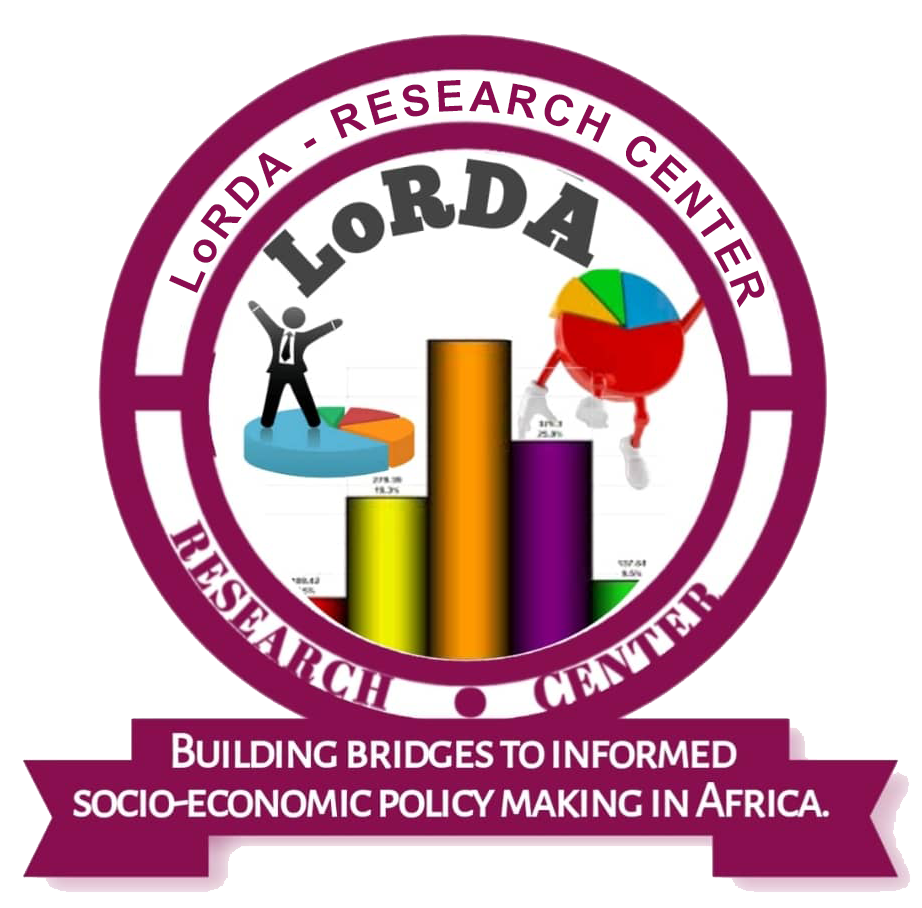Researchers at the LoRDA Research Center have completed a policy-evaluation research project on:
Digital Tax Policy and Tax Revenue Collection in Cameroon
Fossong Derrick and Ashu Mc Moi Ndi
Abstract:
Cameroon adopted a digital tax policy some eight years ago. Before full implementation of the digital tax policy in 2016, councils in Cameroon, especially local councils, reported many challenges due to delays and irregularities in central government revenue-sharing (shared taxes). The direct taxes and fees collected by the councils were felt to be low, given the effort needed to collect them. It is important to understand whether adoption of the digital tax policy has increased the much-needed tax revenue for local council projects, and enhanced general tax revenue.
General tax revenue refers to compulsory transfers to the central government for public purposes, and is made up of resource rent, direct and indirect taxes, and trade taxes. This study examines the impact of the digital tax policy on tax revenue collection in Cameroon using quarterly data from 2010 to 2021, employing an autoregressive distributed lag (ARDL) estimation technique.
The results reveal that the digital tax policy put in place in 2016 had a positive and significant long-term impact on general tax revenue, but a negative and significant short-term impact on general tax revenue. The impact was positive but insignificant on council tax revenue in both the long and short term. Findings indicate that full positive gains from the digital tax policy in Cameroon have not yet been achieved due to local constraints in rural areas. Based on our findings, we recommend that business owners should be trained to use the online declaration and payment system.
This will improve ease of use, reduce dependence on agents, and boost collection of general and council tax revenue.
Keywords: digitalisation; local tax revenue; general tax revenue; ARDL; Cameroon.
READ FULL PAPER HERE:
Fossong Derrick is a PhD Candidate at the Department of Economics, Faculty of Economics and Management Sciences, The University of Bamenda, Cameroon, and Project Manager, LoRDA Research Center.
Ashu Mc Moi Ndi is a PhD Candidate at the Department of Management, The University of Buea, Cameroon, and Researcher, LoRDA Research Center.
